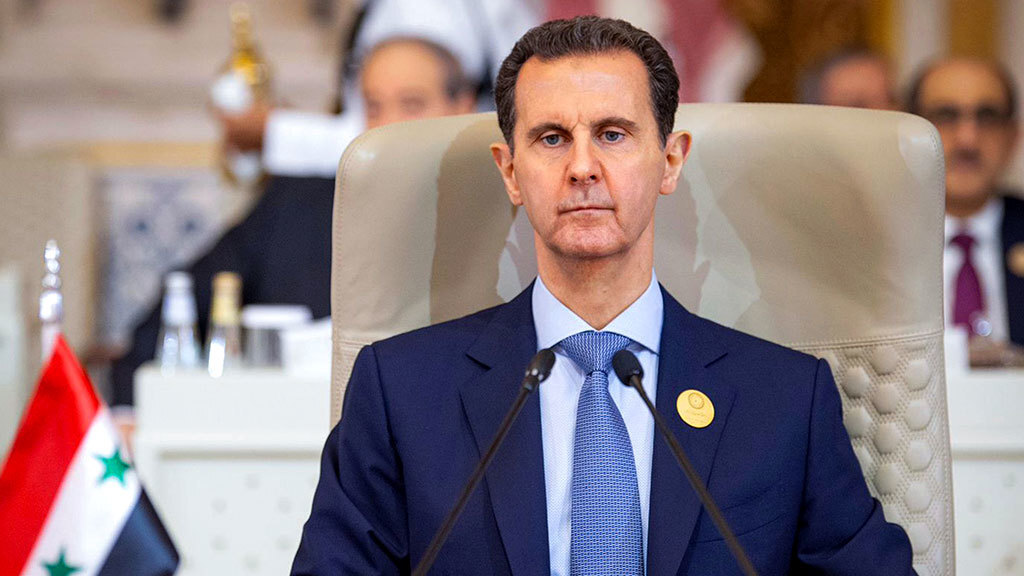Mehdi Honardideh: Did Russia Betray Bashar al-Assad?

By Mehdi Honardideh
The recent publication of al-Jolani’s interview has created the impression in public discourse that the Russians have betrayed Bashar al-Assad and Syria. How can this issue be analyzed?
Relations between the Soviet Union and Syria date back to the 1950s, when the Soviets supported the Ba’ath Party and the Syrian government as an ally against Western influence in the Middle East. These relations were strengthened during the Cold War, and Syria became the Soviet Union’s most important partner in the region. In 1971, the naval base of Tartus was granted to the Soviet Union, becoming its only military base outside the Eastern Bloc.
After the collapse of the Soviet Union in 1991, Russia maintained these relations and continued to provide military equipment and training to Syrian forces. This cooperation intensified during Vladimir Putin’s presidency, and Syria remained one of Moscow’s main allies in West Asia.
Russia viewed its presence in Syria as part of its broader strategy to preserve its influence in West Asia and to counter the expansion of NATO and the West. The Tartus military base was Russia’s only naval facility outside its own territory, granting it access to the Mediterranean Sea—strategically vital for Moscow.
Especially after the emergence of ISIS, Moscow considered its presence in Syria necessary to combat terrorism and to prevent the collapse of an allied government. Russia was concerned that the fall of Assad’s government would create a power vacuum, leading to the expansion of terrorism in the region and threatening the security of the Caucasus and Russia itself.
When ISIS had taken control over large parts of Syria and Iraq, Iran and Russia began close cooperation to preserve Assad’s government. Martyr Qassem Soleimani, commander of the IRGC Quds Force, played a key role in coordination between Moscow and Damascus. Through his visit to Moscow and negotiations with Russian officials, Soleimani convinced President Putin that direct Russian military intervention was essential to confront ISIS and preserve the Assad government.
In September 2015, Russia launched its military operations in Syria, and in cooperation with Iran and Hezbollah, carried out extensive air and ground attacks against ISIS and other Takfiri groups. This intervention marked a turning point in the Syrian war and significantly strengthened the positions of Assad’s government.
The al-Nusra Front, which later rebranded as Jabhat Fatah al-Sham and subsequently as Hay’at Tahrir al-Sham, was initially one of the main targets of Russian airstrikes in the early stages of the Syrian conflict. As the civil war intensified and international pressures increased, Bashar al-Assad gradually realized that remaining in power indefinitely might not be possible. Under such circumstances, Russia sought a political solution to the Syrian crisis that would involve a gradual transition of power.
According to reports, in the final days of Assad’s rule, Russia held talks with some Syrian opposition groups to facilitate Assad’s transfer to Russia and the establishment of a transitional government. These negotiations aimed to prevent further chaos and to preserve a minimum level of Russian influence in Syria.
However, it must be taken into account that although Iran and Russia both supported Assad’s government, their interests and priorities in Syria were not entirely identical. Iran sought to maintain a friendly and allied government in Damascus, while Russia was primarily focused on preserving its military bases and strategic influence in the region. Nevertheless, both countries shared common interests in preventing the collapse of Assad’s government and countering Western influence.
Difference in approach toward the Zionist regime:
One of the key points of divergence between Iran and Russia concerned their approach toward Israeli attacks in Syria. Iran sought direct confrontation with the Zionist regime, whereas Russia attempted to avoid escalation with Israel. However, these differences did not amount to a betrayal by Russia of Iran, but rather stemmed from differing strategic calculations.
In the final days of Assad’s rule, when the fall of the Syrian government appeared inevitable, the Russians established contacts with certain rebel groups in order to safeguard their influence in the post-Assad government, acknowledging that they would have to adapt to the new realities in Syria. Although these communications initially appeared promising, they ultimately failed to yield favorable results for either Iran or Russia, largely due to internal and regional rivalries. In particular, the competition among Turkey, Saudi Arabia, and other regional actors prevented the power transition process in Syria from proceeding in a desirable manner.
Iran, Russia, and Turkey held several rounds of negotiations in Astana to find a solution to the Syrian crisis. Although these talks resulted in the creation of de-escalation zones, they did not lead to a final resolution due to fundamental differences among the parties involved.
In conclusion, while tactical divergences between Iran and Russia undeniably existed, both actors ultimately converged on a shared strategic objective: the preservation of the Assad government and the containment of Western influence in the region. The eventual weakening of the Syrian state resulted from a complex interplay of domestic and external dynamics—factors largely beyond the control of any single regional stakeholder. Consequently, framing the Syrian crisis through a one-dimensional lens and attributing it merely to a so-called “Russian betrayal” not only oversimplifies the geopolitical realities of the conflict but also obscures the critical lessons that must be drawn from Syria’s evolving trajectory.
Source: Center for Geostrategic Studies
